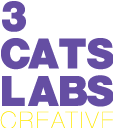You’ve probably been hearing the term ‘NFT’ tossed about in conversation or in news headlines. So, what are these new NFT things? NFT is an acronym for a non-fungible token and they’ve been getting a lot of attention lately thanks to Twitter CEO Jack Dorsey, the band Kings of Leon, and digital artist Beeple.
Jack Dorsey sold his first tweet in an auction and the winning bid was $2.9 million by Bridge Oracle CEO, Sina Estavi. The funds were donated to COVID-19 relief efforts. The Kings of Leon sold a vinyl album with digital download in NFT form for $50. The album was sold for 2 weeks and after those 2 weeks no more will be made.
NFT’s have also been popular in the sports world. The NBA set up a digital trading cards marketplace Each collectible in the marketplace can be bought as an NFT. A video clip of LeBron James sold for $200,000 and an autographed Luke Doncic rookie card sold for $4.6 million.
What is an NFT?
According to The Wall Street Journal using research from NonFungible.com, NFTs have their start in late 2017. More recently, Beeple, a digital artists sold an NFT piece of artwork that fetched $69 million at Christie’s. The sale puts Beeple as one of the top three most valuable living artists. TikTok skater Nathan Apodaca sold a viral video for $500,000.
This sounds great and all. But, what is actually being sold? What’s an NFT?
A fungible asset is something with units that can be interchanged, such as things like money. Two $10 US notes has the same value as one $20 US note. A non-fungible asset is not divisible nor is it replaceable.
NFTs are assets minted on the blockchain, and thus there is reassurance through a transparent chain of ownership and what terms of ownership entails as set by the NFT creator. As they’re built on the blockchain, the NFT ownership code cannot be duplicated or copied.
How Are NFTs Relevant to Marketing & Advertising?
Unlike the entertainment, sports, or arts, NFTs for marketing aren’t selling for astronomical sums. The relevancy to marketing and advertising is different. For example, think of loyalty programs. An NFT for customers enrolled into a loyalty program could be fully personalized based on each customer’s behavior and demographic data. This allows for personalized free gifts and rewards.
This enriches the customer’s experience to an extent that couldn’t be imagined in previous years. Brands can engage with customers on a more personal basis. Also, since NFTs can be traded or sold, benefits are maximized for both the customer and the brand.
We, like many others, expect NFTs to transform the monetization of data. Perhaps in the future each individual will have a digital version of themselves, in which they’e able to control their digital information to include personal data. This could lead to the consumer charging advertisers for access to personal data.
Also, as you may have noticed already, NFTs can be marketing tools in themselves. For example, NBA’s Top Shot has expanded the brand’s reach and increased the lifetime value of each customer.
One other thing about NFTs, which because of blockchain technology, increases transparency. This means that fraud can be eliminated through the transparent tracking of interactions.
Through NFTs the original can be traced back through the record to prove ownership. This helps creators because they won’t need to rely on 3rd party platforms such as brands or social media platforms such as Facebook. NFTs will allow creators to monetize without any dependencies.
What Types of Brands Are Best Suited for NFTs?
Taco Bell isn’t the only brand to have experimented with NFTS. Charmin released some NFT(p) toilet paper based digital art. Winners of the auctioned off NFT(p) art also received a physical display for the winners to show off their unique art.
TIME Magazine released an NFT cover asking “Is Fiat Dead?” The NFT cover paid tribute to past TIME covers asking “Is God Dead” and “Is Truth Dead?”. The covers are to be auctioned on the tokenized buying site SuperRare. Nike has also reportedly patented tokenized in NFT form on the Ethereal blockchain.
The entry point for most brands using NFTs will be in limited edition collectibles. You’re likely to see gaming, fashion, and other loyalty driven brands become the first adopters of NFT based campaigns. This will also minimize the brands fears have of ownership over their Idas and creative. NFTs will allow for brands to trace ownership to the originals and identify fan alterations.
The concept of NFTs is new to many and naturally the companies who already have an interest in digital currency or have the desire to reimagine their own futures. However, you can’t just create an NFT and expect wonders, you have to understand and capture the attention of the digital community.
Let’s Talk About Your Brand
shane@3catslabs.com | Call +65-3159-4231
Share




